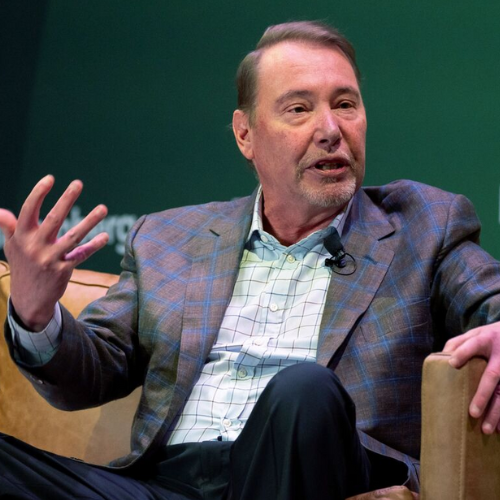Jeffrey Gundlach, the CEO and Chief Investment Officer of DoubleLine Capital, has issued a serious warning about the United States’ rising debt and growing interest costs. He says the current financial path is “untenable,” meaning the country might soon struggle to handle what it owes.
America’s Debt Crisis Raises Alarm Bells
According to Gundlach, the long-term U.S. Treasury bond — once seen as one of the safest places for investors to put their money — is losing its reputation. Investors could begin pulling out of U.S. dollar-based assets and look for safer opportunities in foreign markets.
Gundlach compared today’s financial environment to moments just before major economic disasters. He pointed to 1999, just before the tech bubble burst, and 2006–2007, before the global financial crisis. In both cases, big warning signs were ignored, leading to widespread losses. He believes the U.S. is facing similar risks today due to excessive borrowing and market overconfidence.
Treasury Bonds Lose Their Safe Status
U.S. Treasury bonds, especially the 30-year bond, have always been considered a safe bet in uncertain times. But Gundlach says that assumption is no longer true.
He highlighted that the yield on 30-year Treasury bonds recently hit a near 20-year high of 5.15% and remains close to 5%. That means the government has to pay investors more to borrow money — a sign that investors are increasingly cautious. High yields like this can hurt the economy by raising borrowing costs for everything from mortgages to business loans.
China’s Historic Dump of $53 Billion US Treasuries is Unprecedented Blow to US Economy
DoubleLine Capital, along with other major firms such as Pacific Investment Management Co. (PIMCO) and TCW Group Inc., has been moving away from these long-term bonds. Instead, they are favoring shorter-term bonds, which carry less risk if interest rates continue to rise.
Gundlach warned that if long-term yields rise to 6%, the Federal Reserve may have to restart a policy known as “quantitative easing.” This means the central bank would start buying government bonds again to help lower interest rates. The need to do this would signal deeper trouble in managing the country’s growing debt burden.
Flight from the Dollar and Shift to Gold
As concerns rise over U.S. debt, some investors are beginning to move their money out of dollar-based investments. Gundlach revealed that DoubleLine Capital is now adding more foreign currencies into its investment funds. He says the shift shows that global money is no longer flowing into the United States as it once did.
One of the biggest winners from this change is gold. Long seen as a safe haven for extreme situations, gold is now being embraced by mainstream investors.
Japan’s $1 Trillion Trump Card? Treasury Holdings Thrust Into U.S. Trade Spat
Gundlach called it a “real asset class” and said it has taken over as the new “flight to quality” choice. Gold prices recently reached record highs, and Gundlach has suggested they could climb as high as $4,000 per ounce — up from around $3,350 now.
Gundlach also expressed concern about the fast-growing private credit market. He compared the current boom in private credit to the buildup of risky financial products known as CDOs before the 2008 crisis. He said there’s now “tremendous issuance” and “tremendous acceptance” of these products, which could spell trouble ahead. If investors begin selling these assets all at once, it could cause a serious market shakeup.
He noted that large U.S. institutions such as Harvard University are already exploring ways to reduce their holdings in private equity. This trend may be connected to changes in government policies, such as cuts to research grants and funding, which are putting pressure on university budgets.
Alongside these concerns, Gundlach pointed to India as a bright spot for long-term investment. He said the country has many of the same advantages that China had about 35 years ago, making it a promising place to invest over time.


